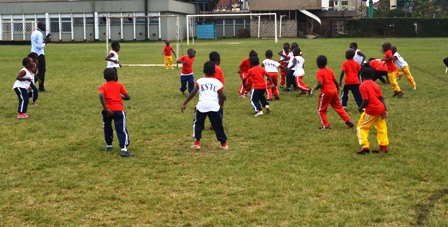
2-6-3-3 Curriculum Subjects: BY THE STANDARD: The rollout of the new curriculum has started in pre-primary One and pre-primary Two (PP1 and 2 and Grade 1, 2 and 3.)
Lessons
According to a circular on its implementation released by Education Cabinet Secretary Amina Mohamed, lessons will last 30 minutes, 10 minutes lesser than during the 8-4-4 era.
There shall be five lessons in a day for pre-primary school pupils and seven for their lower primary counterparts.
Across the first term, pre-primary school will have five lessons on language activities, five on mathematics activities, five on environmental activities, eight on psychomotor and creative activities, one on religious activities and another on Pastoral Programmes of Instruction (PPI).
Examinations
Unlike before when learner sat one-off examinations (KCPE, KCSE) at the end of each stage, they will be evaluated through Continuous Assessment Tests (CATs) on the skills acquired.
Subjects
In lower primary; pupils will learn Literacy, Kiswahili Language Activities/Kenya Sign Language for learners who are deaf, English Language Activities, Indigenous Language Activities, Mathematical Activities, Environmental Activities, Hygiene and Nutrition Activities, Religious Education Activities and Movement and Creative Activities.
According to Kenya Institute of Curriculum Development, ICT will be a learning tool in all areas. When they move to the next phase divided into three years of upper primary and three years of lower secondary education, learners will be introduced to an exploration and experimentation stage.
Upper Primary
It will have 10 subjects: English, Kiswahili or Kenya Sign Language (for learners who are deaf), Home Science, Agriculture, Science and Technology, Mathematics, Religious Education (CRE/IRE/HRE), Creative Arts, Physical and Health Education and Social Studies. Four optional foreign languages (Arabic, French, German, and Mandarin) will also be introduced at this stage.
Lower Secondary
In lower secondary (Grades 7, 8 and 9) subjects will be divided into core and optional subjects. The 12 core subjects include English, Kiswahili or Kenyan Sign Language for learners who are deaf, Mathematics, Integrated Science, Health Education, Pre-Technical and Pre-Career Education, Social Studies, Religious Education, Business Studies, Agriculture, Life Skills Education and Sports and Physical Education.
They will pick at least one subject from Visual Arts, Performing Arts, Home Science, Computer Science, Foreign Languages, Kenyan Sign Language or Indigenous Languages.
Senior School
Student at Eastleigh High School during a past Biology class. [File, Standard]
At senior school (Grades 10, 11 and 12), expected to last another three years the learners who are now between age 15 and 17 will have three pathways to pick based on their competency, talent and interest.
A student can settle on Arts and Sports Science, Social Sciences or Science Technical Engineering and Mathematics (STEM). Graduates from this level will have the option to join vocational training centres or pursue university education for three years.
Teachers
Teachers at the various grades will incorporate practical sessions as opposed to oral teaching. At least 170,000 teachers have been trained in the CBC with the education ministry saying plans are underway to do intensive in-service teacher training.
Books
KICD had listed a list of approved textbooks but the confusion caused when Education CS Amina Mohamed announced the postpone of the new system to 2022 threw parents of the track.
Now at least they know which books to buy.




